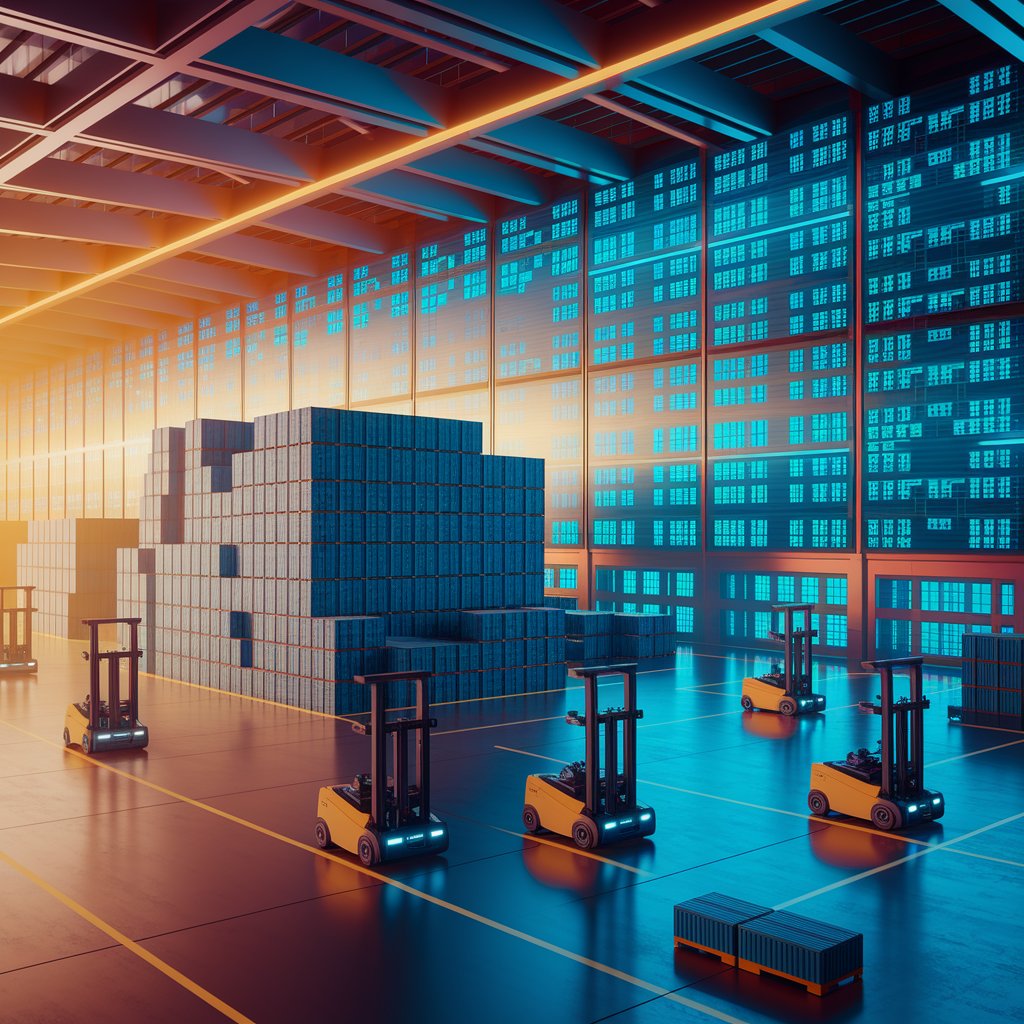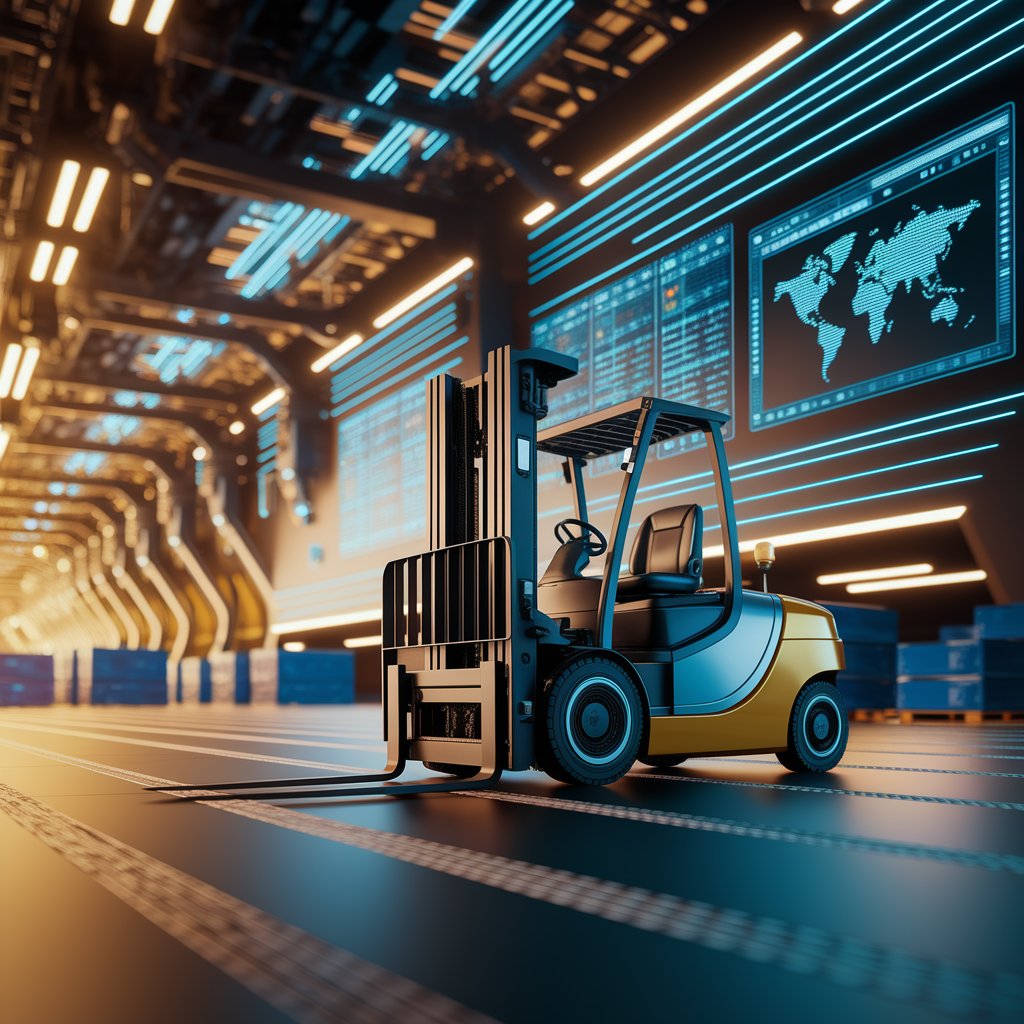Logistics Automation Suite: The Future of Intelligent Supply Chain Management

Introduction
That’s where a logistics automation suite comes into play — an integrated ecosystem of digital tools that automates planning, tracking, documentation, and analysis. Whether you’re a freight forwarder, 3PL provider, or manufacturer, automation helps eliminate inefficiencies and empowers you to make faster, smarter, and more profitable decisions.
⚙️ What Is a Logistics Automation Suite?
A logistics automation suite is an all-encompassing platform that centralizes and automates every critical process in logistics management. It connects various systems such as TMS (Transportation Management System), WMS (Warehouse Management System), CRM, and accounting tools into a single, unified interface.
This software suite leverages technologies like Artificial Intelligence (AI), Machine Learning (ML), IoT sensors, and predictive analytics to simplify complex workflows. Instead of relying on manual input or disconnected systems, logistics professionals gain end-to-end control and real-time visibility over shipments, inventory, and performance metrics.
In short, a logistics automation suite acts as the digital command center of your entire operation 🚢.

🧩 Core Components of a Modern Logistics Automation Suite
A comprehensive logistics automation suite includes several powerful modules working together:
- Transportation Management System (TMS) – Optimizes carrier selection, routing, and delivery scheduling.
- Warehouse Management System (WMS) – Automates storage, picking, and inventory control.
- Customer Relationship Management (CRM) – Centralizes client data, communication, and quotes.
- Document Automation – Generates B/L, invoices, and customs forms automatically.
- AI & Predictive Analytics – Detects inefficiencies, predicts delays, and recommends improvements.
- API Integrations – Connects e-commerce, accounting, and ERP tools for seamless data flow.
💡 These elements work in harmony to build a fully connected digital logistics ecosystem.
🌍 Key Benefits of Implementing a Logistics Automation Suite
Automation is not just about replacing manual work — it’s about creating an ecosystem of efficiency, transparency, and scalability. Let’s explore the main advantages 👇
🚚 1. Operational Efficiency
Automating repetitive tasks like data entry, rate comparison, or document generation reduces time spent on administrative work. Teams can focus on strategic decisions instead of manual processes.
🧾 2. Improved Accuracy
Human errors in documentation or billing can lead to costly delays. Automation ensures all data — from invoices to customs forms — is accurate and consistent.
🕒 3. Real-Time Visibility
With IoT-enabled tracking, logistics managers can monitor shipments across air, sea, and land. Real-time visibility enhances accountability and allows proactive issue resolution.
💰 4. Cost Reduction
Automation minimizes inefficiencies that inflate costs — such as fuel overuse, idle time, and manual labor. Companies can achieve double-digit cost savings through smarter routing and resource allocation.
📈 5. Scalability and Growth
Whether handling 100 or 10,000 shipments, a logistics automation suite grows with your business. It supports multi-location, multi-client, and multi-currency operations without additional overhead.
🧠 The Role of Artificial Intelligence in Logistics Automation
AI has become the cornerstone of logistics innovation. It allows software systems to learn from data, recognize patterns, and make recommendations that drive efficiency.
Here’s how AI enhances logistics automation:
- Demand forecasting: Predicts upcoming shipment volumes or inventory needs.
- Smart route optimization: Chooses the fastest and most cost-effective delivery paths.
- Dynamic pricing: Adjusts quotes automatically based on fuel prices or demand.
- Predictive maintenance: Anticipates equipment issues before breakdowns occur.
- Chatbots & Virtual Assistants: Handle customer inquiries 24/7 with instant responses.
The result? A self-improving supply chain that gets smarter with every shipment. 🤖

🧱 How a Logistics Automation Suite Streamlines Supply Chains
Automation connects the entire logistics ecosystem:
- Manufacturers can automate production-to-shipment scheduling.
- Freight Forwarders can handle quotes, bookings, and documents with minimal human input.
- 3PL Providers can manage multiple warehouses and clients through one unified dashboard.
- Shippers can gain transparency and reduce errors across their carrier networks.
By synchronizing all these operations, a logistics automation suite eliminates silos and promotes collaborative logistics.
🧭 How to Choose the Right Logistics Automation Suite
Not all systems are created equal. When evaluating solutions, consider these key factors:
- Ease of Integration: Ensure the software connects seamlessly with your existing ERP, CRM, or accounting tools.
- Scalability: The system should adapt to your company’s growth and handle increasing shipment volumes.
- Customization: Look for platforms that allow tailored workflows, branding, and access controls.
- User Experience: A clean, intuitive interface reduces onboarding time and improves adoption.
- Support & Training: Choose a provider that offers reliable onboarding, documentation, and continuous support.
A great logistics automation suite should feel like an extension of your team — not another system to manage.

📊 Case Example: The Power of Automation in Action
A mid-sized 3PL implemented a logistics automation suite to replace its manual tracking spreadsheets. Within three months:
- Order processing time dropped by 45%.
- Delivery accuracy improved by 33%.
- Operational costs were reduced by nearly 20%.
- Customer satisfaction increased due to faster, more reliable updates.
This example highlights how automation drives measurable ROI while improving the overall logistics experience.
✅ Conclusion
In a world where logistics demands continue to rise, automation has become a strategic necessity rather than an option.
A logistics automation suite serves as the backbone of modern logistics, uniting technology, data, and operational intelligence into one powerful platform.
By embracing automation today, your company can future-proof its supply chain, improve profitability, and deliver an unmatched customer experience.
